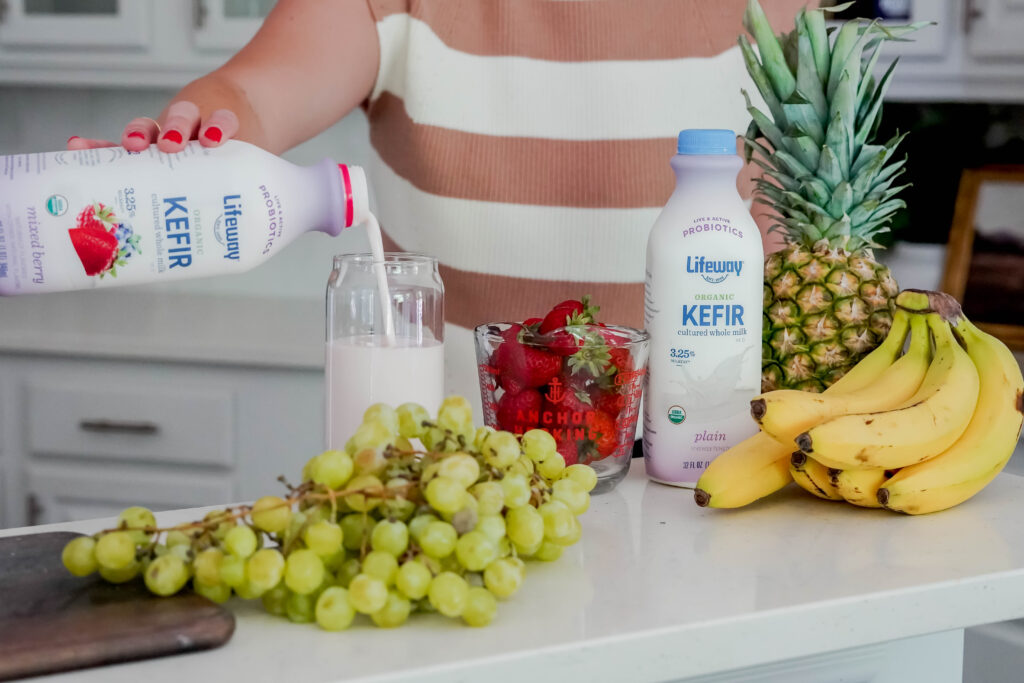“My tummy hurts!” a dear moaned to us over the phone the other day.
“What’s wrong?” we asked.
“It’s in knots. I feel awful. I don’t even want to move. But I dragged myself to the store to see if there’s any medicine I can take.”
Medicine? We thought. Who needs pricey drugs when a creamy, cold snack in the refrigerated beverage aisle could do the trick?
“Why don’t you try some kefir,” we asked?
And wouldn’t you know it, we received a relieved text from this friend just a few hours later, explaining that her discomfort was gone; her cramping had subsided, she had taken a lovely bathroom trip, and was now referring to us as “genius.”
We’re not about to argue.
Tummy Trouble, Be Gone
with Lifeway Kefir

For a while now, C has suspected she suffers from Irritable Bowel Syndrome (IBS), a constellation of symptoms including abdominal pain or discomfort, cramping, bloating, gas, diarrhea, and/or constipation. IBS impacts the colon or large bowel, the part of the digestive tract that stores stool. About one in 10 people worldwide struggle with IBS, but many remain silent because the symptoms can be embarrassing.
A host of treatments, from medications and dietary modifications to psychotherapy and mind-body therapies have been shown to alleviate symptoms. Do you know what else is believed to help? Kefir. Many studies show that adding certain types of “good” bacteria, like lactobacilli and bifidobacteria, to one’s diet may alleviate IBS symptoms. These bugs, called probiotics, are typically found in the large intestine, but adding them to the diet can relieve gas, bloating and discomfort, while reducing food’s transit time through the intestine (translation: it helps you poop).
A recent World Journal of Gastroenterology study found that IBS sufferers experienced relief from constipation after taking probiotics; dozens more back this up. Fiber-rich foods such as whole grain breads and cereals, beans, fruits and vegetables may also help ease IBS-associated constipation. (For the uninitiated, thought, experts suggest adding these foods to your diet a little bit at a time, to allow your body to get used to them and avoid the gas and bloating which additional fiber can cause.) Lifeway kefir contains three grams fiber per one cup serving – 12 percent of your daily needs!
If you think you may suffer from IBS, it’s important to talk with your doctor and plan a treatment strategy. There is no need to struggle in silence – there are therapies that can bring you relief. And don’t forget to bring up Lifeway kefir with your physician or nutritionist; it could become an integral component of your feel-better strategy.